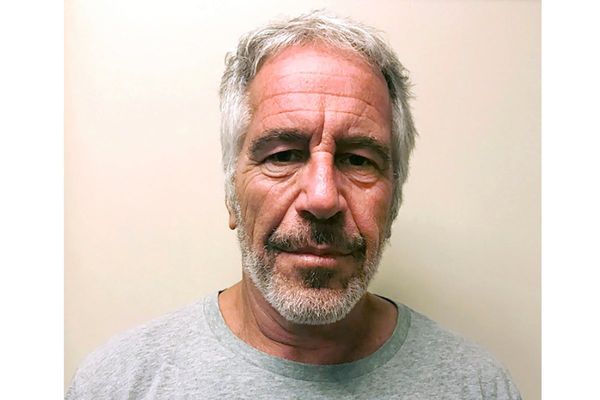
It's quite a turn when a prosecutor defends the use of cash for financial transactions. After years of authorities treating mere possession of physical money as sketchy and grounds for seizure, this week a law enforcement official claimed there's nothing to see in her alleged cash reimbursements to her boyfriend for an enviable lifestyle arguably funded by the taxpayers. Either Fani Willis and company were right in the past and she should be subject to scrutiny for anonymous transactions, or she's right today and she and her colleagues owe the rest of us a pass on our taste for financial anonymity.
If you haven't kept up on the details, Fani Willis is the Fulton County district attorney overseeing the Georgia election interference case, which has been described as potentially the strongest and most consequential case against former (and maybe future) president Donald Trump. At least, it was described that way until defense attorneys revealed that Nathan Wade, a special prosecutor in the case, is unqualified for the job, was romantically involved with Willis, and is being paid much more than any of his colleagues (around $654,000 in all)—money from which Willis seemingly benefited in the form of expensive vacations and other pleasures of life with Wade.
She Reimbursed Everything in Cash. Of Course.
Well, she benefited unless she reimbursed Wade for her share. Whether or not she did is among the issues raised in a hearing investigating her alleged misconduct in the case.
"I didn't ever make him produce receipts to me," Willis said in response to questions about the couple's significant expenses. "Whatever he told me it was, I gave him the money back."
"You gave him cash before you ever went on the trip?" she was asked to clarify about one vacation.
"Mmm-hmm," Willis replied.
But she not only had no receipts, she also had no ATM slips or evidence the cash existed. It supposedly came from a substantial stash she kept at home on her father's urging.
Dad's Advice and 'Printed Freedom'
"I was trained, and most Black folks, they hide cash or they keep cash, and I was trained you always keep some cash," her father, John Floyd, confirmed. "I gave my daughter her first cash box and told her, 'Always keep some cash.'"
That's great advice. Cash is essential in emergencies, useful when electronic payments systems are down, and (importantly for this case) it's private and anonymous. When central-bank types floated the idea of abolishing physical money in favor of digital currency a decade ago, prominent German economist Lars Feld retorted that cash is "printed freedom" which helps people escape state control.
But that anonymity, which Fani Willis cited as the reason she had no evidence that she'd compensated Wade for his expenses, is exactly why government officials so despise its use by mere mortals.
Governments Hate Cash
"It just was not credible," CNN legal analyst Michael Moore, a former United States Attorney, commented of Willis's testimony about "things as nebulous as cash payments so there's no way to track it." He added: "It reminded me of watching a criminal defendant take the stand."
Cash is increasingly assumed by officialdom to be nefarious in and of itself.
"Cash can play a role in criminal activities such as money laundering and allow for tax evasion," notes Investopedia. "Since 2016, global policies have been implemented to thwart the use of cash in favor of digital currency transactions."
The mere presence of physical money triggers official suspicion and the urge to confiscate.
"It's the presence of paper legal tender—U.S. currency—that underlies nearly all of the thousands of police interactions we reviewed," The Greenville News reported in a 2020 story on civil asset forfeiture, under which money and valuables are seized, often with no charges brought against their owners.
Like Fani Willis, CNN's Moore is from Georgia and served there at both the state and federal level, so his attitude is illuminating. Georgia gets a D- grade from the Institute for Justice (I.J.) for its forfeiture laws.
"Across 15 states for which we have reliable property data for 2018,38 currency—primarily cash—predominates, accounting for an average of nearly 70% of forfeited property," I.J. revealed in the 2020 report, Policing for Profit. Georgia was among those states and "between 2015 and 2018, Georgia law enforcement agencies forfeited more than $51 million under state law. Between 2000 and 2019, they generated an additional $388 million from federal equitable sharing, for a total of at least $439 million in forfeiture revenue."
The 2023 budget for Fani Willis's Fulton County government includes Fund 442, Federal Equitable Sharing, for "proceeds of liquidated seized assets from asset forfeitures."
Willis may have taken her father's excellent advice about keeping cash on-hand. But her office is among those putting the screws to members of the public who abide by similar counsel and rely on physical money for its utility and anonymity. To keep large amounts of cash in Fulton County, Georgia, is to risk its seizure by the authorities. Yet Willis (assuming we believe her) does much business in cash.
If Prosecutors Get To Benefit, So Do We
So, which is it? Was the Fani Willis of the past, along with most of her profession, correct in considering cash to be inherently sketchy and evidence of some sort of criminal activity? If so, the court should view her claims of cash transactions as suspicious in themselves, just as she would treat regular people.
Or is the Fani Willis of last week correct that using cash is just good sense and evidence of homey wisdom handed down through the family? If that's the case, her office should have been treating people with the same light touch she hopes to receive.
The powers-that-be should abide by the same policies they inflict on the rest of us. If they want the freedom and privacy inherent in using cash, they can't keep it as a private privilege; we all get to benefit.
My sentiments are with John Floyd and Lars Feld on this. Cash is freedom and we should always keep some on hand. If that applies to Fani Willis, it must apply to everybody.
The post Prosecutor Fani Willis Touts the Value of Cash, but What About the Rest of Us? appeared first on Reason.com.







